|
Books Should Be Free Loyal Books Free Public Domain Audiobooks & eBook Downloads |
|
|
Books Should Be Free Loyal Books Free Public Domain Audiobooks & eBook Downloads |
|
Non-fiction |
|---|
|
Book type:
Sort by:
View by:
|
By: Meredith Nicholson (1866-1947) | |
|---|---|
 Broken Barriers
Broken Barriers
Life abruptly changes for young socialite, Grace Durland., when her father goes bankrupt and she is forced to earn a living. Thrust into a new life, she meets -- and falls in love with -- a married man. She faces condemnation from friends and family alike, and although Ward Trenton reciprocates her feelings, his wife refuses him a divorce. Once again, fate intervenes in the form of a serious accident. - Summary by Lynne Thompson | |
By: Michael Combrune | |
|---|---|
 Theory and Practice of Brewing
Theory and Practice of Brewing
This is an elaborate treatise on how to brew beer. That art is as noble today as it was in 1761, when this book was first published, and Mr. Combrune was a master of his art. After reading his work on this topic, a glass of beer can be enjoyed on quite a different level. - Summary by Carolin | |
By: Michael Faraday (1791-1867) | |
|---|---|
 The Chemical History of a Candle
The Chemical History of a Candle
The Chemical History of a Candle is a series of 6 lectures on chemistry presented to a juvenile audience in 1848. Taught by Michael Faraday - a chemist and physist, and regarded as the best experimentalist in the history of science - it is probably the most famous of the Christmas Lectures of the Royal Society. Taking the everyday burning of a candle as a starting point, Faraday spans the arc from combustion and its products, via the components of water and air (oxygen, hydrogen, nitrogen, carbon), back to the type of combustion that happens in the human body when we breathe... | |
By: Michael Müller (1825-1899) | |
|---|---|
 Public School Education
Public School Education
| |
By: Michel Eyquem de Montaigne (1533-1592) | |
|---|---|
 Essays, Book 1
Essays, Book 1
Michel Eyquem de Montaigne is one of the most influential writers of the French Renaissance, known for popularising the essay as a literary genre and is popularly thought of as the father of Modern Skepticism. He became famous for his effortless ability to merge serious intellectual speculation with casual anecdotes and autobiography—and his massive volume Essais (translated literally as "Attempts") contains, to this day, some of the most widely influential essays ever written. | |
By: Mildred Duff (1860-1932) | |
|---|---|
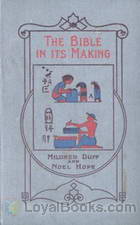 The Bible in Its Making - The Most Wonderful Book in the World
The Bible in Its Making - The Most Wonderful Book in the World
One great universal law runs through the realm of nature. Our Saviour gave it in a sentence: 'First the blade, then the ear, after that the full corn in the ear.' It is with the desire to show that the same law rules in another of God's creations — The Bible — that this little volume has been prepared. The Bible has as literally 'grown' as has an oak tree; and probably there is no more likeness between the Bible as we know it to-day and its earliest beginning, than we find between the mighty tree, and the acorn from which it sprang... | |
By: Mildred Maddocks | |
|---|---|
 The Consumer Viewpoint
The Consumer Viewpoint
| |
By: Milo M. Hastings (1884-1957) | |
|---|---|
 The Dollar Hen
The Dollar Hen
| |
By: Mohandas Karamchand Gandhi | |
|---|---|
 Third Class in Indian Railways
Third Class in Indian Railways
Mohandas Karamchand Gandhi (1869 – 1948) was the pre-eminent political and spiritual leader of India during the Indian independence movement. He was the pioneer of satyagraha — resistance to tyranny through mass civil disobedience. This philosophy was firmly founded upon ahimsa, or total nonviolence, and led India to independence and inspired movements for civil rights and freedom across the world. Gandhi is commonly known around the world as Mahatma Gandhi and in India also as Bapu. He is officially honoured in India as the Father of the Nation; his birthday, 2 October, is commemorated there as Gandhi Jayanti, a national holiday. | |
 Guide to Health
Guide to Health
Mahatma Gandhi, known today as a fascinating political leader and pacifist, also considered himself "something of an authority on matters of Health and Disease as well. Very few of us perhaps are aware that he is the author of quite an original little Health-book in Gujarati. [...] His views are of course radically different from the ordinary views that find expression in the pages of such books; in many cases, indeed, his doctrines must be pronounced revolutionary, and will doubtless be regarded by a certain class of readers as wholly impracticable... | |
By: Mr. (John) Oldmixon (1673-1742) | |
|---|---|
 Reflections on Dr. Swift's Letter to Harley (1712) and The British Academy (1712)
Reflections on Dr. Swift's Letter to Harley (1712) and The British Academy (1712)
| |
By: Mrs. (Jean Oliver) Mill | |
|---|---|
 Reform Cookery Book (4th edition) Up-To-Date Health Cookery for the Twentieth Century.
Reform Cookery Book (4th edition) Up-To-Date Health Cookery for the Twentieth Century.
| |
By: Mrs. Bowdich | |
|---|---|
 New Vegetarian Dishes
New Vegetarian Dishes
| |
By: Mrs. Cecil Hall | |
|---|---|
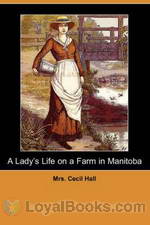 A Lady's Life on a Farm in Manitoba
A Lady's Life on a Farm in Manitoba
The nineteenth century was marked by intense colonization by countries like Britain, France, Portugal, Spain and the Netherlands. Initially, the pioneering efforts were made by men who battled unfamiliar terrain to create territories that they marked out as their own, while their wives, mothers, sisters and daughters kept the home and hearth in their native land. However, with travel becoming more common and family life assuming more importance, the women too began to travel to the four corners of the earth... | |
By: Mrs. E. E. Kellogg | |
|---|---|
 Science in the Kitchen.
Science in the Kitchen.
| |
By: Mrs. Eugenia Dunlap Potts (1840-1912) | |
|---|---|
 Historic Papers on the Causes of the Civil War
Historic Papers on the Causes of the Civil War
While claiming to be historical papers on the causes of the United States Civil War, the author indulges in some Slavery Apologetics. An interesting view from a southern lady on what caused the war and why the south was the underdog. | |
By: Mrs. Humphry | |
|---|---|
 Manners for Men
Manners for Men
Many men who go out into the world while still very young to earn their living have few opportunities of acquiring a knowledge of social observances. Should this little manual of manners be of use to any such in enabling them to master the theory, as it were, of social customs in the educated classes, it will have attained its aim. | |
By: Mrs. Isabella Beeton (1836-1865) | |
|---|---|
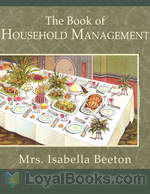 The Book of Household Management
The Book of Household Management
“Mrs. Beeton’s” is a guide to all aspects of running a household in Victorian Britain. Published in 1861, it was an immediate bestseller, running to millions of copies within just a few years. In the cookery sections, Mrs. Beeton follows the animal “from his birth to his appearance on the table.” Learn how to care for poultry during moulting season, how to wean calves, how to cure hams, salt cod, carve mutton, and much more. | |
By: Myrtle Reed (1874-1911) | |
|---|---|
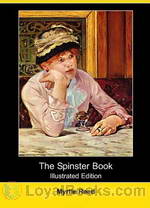 The Spinster Book
The Spinster Book
A cross between guidebook and social commentary, The Spinster Book gives clever and humorous insights on topics such as courting, handling men and women, love letters, marriage and spinsterhood. | |
By: N. A. (Napoléon-Antoine) Belcourt (1860-1932) | |
|---|---|
 Bilingualism Address delivered before the Quebec Canadian Club, at Quebec, Tuesday, March 28th, 1916
Bilingualism Address delivered before the Quebec Canadian Club, at Quebec, Tuesday, March 28th, 1916
| |
By: N. E. Dionne (1848-1917) | |
|---|---|
 The Makers of Canada: Champlain
The Makers of Canada: Champlain
A biography of Samuel de Champlain, French explorer, founder of Quebec, and father of New France. ( | |
By: Nathaniel C. Fowler, Jr. (1858-1918) | |
|---|---|
 1000 Things Worth Knowing
1000 Things Worth Knowing
Part almanac, part encyclopedia, part dictionary, Nathaniel C. Fowler, Jr. gives us his idea of important, but sometimes obscure, facts that he thinks should be in our bank of general knowledge. He includes a large section on medical emergency and health. Items are arranged in alphabetical order, so there is no logical presentation, but reference is made easy. Or, it is just interesting browsing, and a glimpse into the world of the early twentieth century. - Summary by Larry Wilson | |
By: Nathaniel Hawthorne (1804-1864) | |
|---|---|
 Our Old Home
Our Old Home
These essays, based on Hawthorne’s stay in England from 1853 to 1857 as American Consul in Liverpool, were first published in the form of a series of travel articles for The Atlantic Monthly.In these writings, he displays his humor, his empathetic nature, his pride in his country, and sometimes his sharp judgment of others. He shares with us the difficulties of being a consul in the 1850’s, takes us on a tour with him through rural England and Scotland, shows us the splendors of London, and the horrors of the poverty that so many suffered. (Introduction by Margaret) | |
By: Nathaniel Hillyer Egleston (1822-1912) | |
|---|---|
 Arbor Day Leaves A Complete Programme For Arbor Day Observance, Including Readings, Recitations, Music, and General Information
Arbor Day Leaves A Complete Programme For Arbor Day Observance, Including Readings, Recitations, Music, and General Information
| |
By: Nathaniel Sands | |
|---|---|
 The Philosophy of Teaching The Teacher, The Pupil, The School
The Philosophy of Teaching The Teacher, The Pupil, The School
| |
By: Nathaniel Southgate Shaler (1841-1906) | |
|---|---|
 Domesticated Animals Their Relation to Man and to his Advancement in Civilization
Domesticated Animals Their Relation to Man and to his Advancement in Civilization
| |
By: Naval War College (U.S.) | |
|---|---|
 Sound Military Decision
Sound Military Decision
| |
By: Nennius | |
|---|---|
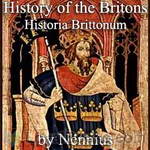 History of the Britons (Historia Brittonum)
History of the Britons (Historia Brittonum)
Although the origin of this book is much debated it remains, perhaps, one of the earliest recorded histories of Britain. It was believed that Nennius wrote the book around 796AD. If indeed he wrote this record, Nennius is recognised as being a teller, and embellisher, of historic characters and events.This book remains notable however, as one of the earliest that mention Arthur (The King of Arthurian legend). | |
By: Niccolò Machiavelli (1469-1527) | |
|---|---|
 History of Florence and of the Affairs of Italy
History of Florence and of the Affairs of Italy
History of Florence and of the Affairs of Italy is an historical account by Niccolò Machiavelli. Toward the end of 1520, the Cardinal Giulio of Medici, later Pope Clement VII, offered Machiavelli the appointment to write a history of Florence. Although Machiavelli was reluctant to accept, accepting was his only way to regain the good graces of the Medici who had regained power and were in a position to offer him employment and protection. Doing the history also provided a way for Machiavelli’s views to become the “official” history of Florentine and Italian affairs. Once completed, the work was presented officially to Giulio, now Pope, in May of 1526. | |
By: Nicolas Notovitch (1858-?) | |
|---|---|
 The Unknown Life of Jesus Christ
The Unknown Life of Jesus Christ
The New Testament describes the life of Jesus, but nothing is said of his life between the ages of 14 and 29. Notovitch, like so many historians, tries to find evidence of what happened to Jesus during those years. He claims to have found the answer in an old document describing the life of Saint Issa. "The Unknown Life of Jesus Christ" is a copy of the manuscript along with Notovitch's reflections on his findings. It will take you on a journey to an unexpected land, linking people, cultures and religions you wouldn't dream of linking. | |
By: Noah Davis (b. 1804) | |
|---|---|
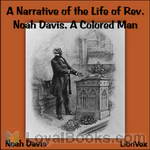 A Narrative of the Life of Rev. Noah Davis, A Colored Man
A Narrative of the Life of Rev. Noah Davis, A Colored Man
The object of the writer, in preparing this account of himself, is to RAISE SUFFICIENT MEANS TO FREE HIS LAST TWO CHILDREN FROM SLAVERY. Having already, within twelve years past, purchased himself, his wife, and five of his children, at a cost, altogether, of over four thousand dollars, he now earnestly desires a humane and Christian public to AID HIM IN THE SALE OF THIS BOOK, for the purpose of finishing the task in which he has so long and anxiously labored. God has blessed him in an extraordinary... | |
By: Northern Nut Growers Association [Editor] | |
|---|---|
 Northern Nut Growers Association, report of the proceedings at the sixth annual meeting Rochester, New York, September 1 and 2, 1915
Northern Nut Growers Association, report of the proceedings at the sixth annual meeting Rochester, New York, September 1 and 2, 1915
| |
By: Ohio Department of Industrial Relations [Compiler] | |
|---|---|
 Mining Laws of Ohio, 1921
Mining Laws of Ohio, 1921
| |
By: Okakura Kakuzo (1863-1913) | |
|---|---|
 The Book of Tea
The Book of Tea
The Book of Tea was written by Okakura Kakuzo in the early 20th century. It was first published in 1906, and has since been republished many times. – In the book, Kakuzo introduces the term Teaism and how Tea has affected nearly every aspect of Japanese culture, thought, and life. The book is noted to be accessibile to Western audiences because though Kakuzo was born and raised Japanese, he was trained from a young age to speak English; and would speak it all his life, becoming proficient at communicating his thoughts in the Western Mind... | |
By: Olaudah Equiano (1745-1797) | |
|---|---|
 The Interesting Narrative of the Life of Olaudah Equiano, Or Gustavus Vassa, The African
The Interesting Narrative of the Life of Olaudah Equiano, Or Gustavus Vassa, The African
The Interesting Narrative of the Life of Olaudah Equiano, written in 1789, is the autobiography of Olaudah Equiano. It discusses his time spent in slavery, serving primarily on galleys, documents his attempts at becoming an independent man through his study of the Bible, and his eventual success in gaining his own freedom and in business thereafter. The book contains an interesting discussion of slavery in West Africa and illustrates how the experience differs from the dehumanising slavery of the Americas... | |
By: Olive Gilbert (?-?) & Sojourner Truth (1797-1883) | |
|---|---|
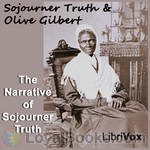 The Narrative of Sojourner Truth
The Narrative of Sojourner Truth
The Narrative of Sojourner Truth is the gripping autobiographical account of Sojourner Truth's life as a slave in pre-Civil War New York State, and her eventual escape to Freedom. Since Sojourner could neither read or write, she dictated her story to Olive Gilbert after they met at a Women’s Rights rally. The Narrative was first published in 1850, and was widely distributed by the Abolitionist Movement. It was one of the catalysts for the rise of anti-slavery public opinion in the years leading up to the Civil War... | |
By: Olive Green | |
|---|---|
 How to Cook Fish
How to Cook Fish
One hundred simple fish sauces. Sixty-five ways to cook mackerel. The Catching of Unshelled Fish. Twenty-seven ways to Cook Frogslegs. Now that should certainly make you reach for your apron and fish knife! How to Cook Fish by Olive Green is a vintage culinary classic, filled with simple, easy to follow recipes rendered in a terse, no nonsense style. There's none of this fiddling with scales, weights and measures. What you get is a mélange of interesting, unusual ways to cook seafood without worrying about lists of ingredients, timings, temperature or any of the conventions followed by traditional cookbooks... | |
By: Olive Schreiner (1855-1920) | |
|---|---|
 Thoughts on South Africa
Thoughts on South Africa
'Thoughts on South Africa' is a collection of Schreiner's observations of colonial South Africa in the early 19th century, mostly regarding Boer-English relations. The book was published posthumously in 1923. Prospective listeners should be aware that it reflects the place, culture and language of the time in which it was written. | |
By: Oliver Lodge (1851-1940) | |
|---|---|
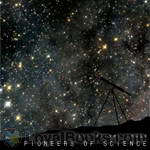 Pioneers of Science
Pioneers of Science
This book takes its origin in a course of lectures on the history and progress of Astronomy arranged for Sir Oliver Lodge in the year 1887. The first part of this book is devoted to the biographies and discoveries of well known astronomers like Copernicus, Brahe, Kepler, Galileo and Newton. In the second part, the biographies take a back seat, while scientific discoveries are discussed more extensively, like the discovery of Asteroids and Neptune, a treatise on the tides and others. | |
By: Oliver Optic (1822-1897) | |
|---|---|
 Up the River
Up the River
Up the River is the sixth and last of “The Great Western Series.” The events of the story occur on the coast of Florida, in the Gulf of Mexico, and on the Mississippi River. The volume and the series close with the return of the hero, by a route not often taken by tourists, to his home in Michigan. His voyaging on the ocean, the Great Lakes, and the Father of Waters, is finished for the present; but the writer believes that his principal character has grown wiser and better since he was first introduced to the reader... | |
By: Oliver Wendell Holmes (1841-1935) | |
|---|---|
 The Path of the Law
The Path of the Law
| |
 Oliver Wendell Holmes, Sr. Works
Oliver Wendell Holmes, Sr. Works
| |
By: Oliver Wendell Holmes, Sr. (1809-1894) | |
|---|---|
 My Hunt After 'The Captain'
My Hunt After 'The Captain'
Holmes describes his frantic search through Civil War torn landscapes for his wounded son, the future Supreme Court Justice. Originally published in The Atlantic Magazine, 1862. Holmes, Sr. (1809 -1894) was an American physician, poet, professor, lecturer, and author. He was regarded by his peers as one of the best writers of the 19th century. His most famous prose works are the "Breakfast Table" series, which began with The Autocrat of the Breakfast Table (1858). He is also recognized as an important medical reformer. | |
By: Ontario Ministry of Education | |
|---|---|
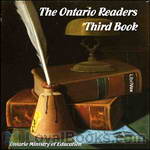 The Ontario Readers Third Book
The Ontario Readers Third Book
The Ontario Readers is a school book first published in 1909, by the Ontario Ministry of Education, containing short excerpts of literary works, both stories and poems, geared to grade-school age children. | |
By: Oscar Micheaux (1884-1951) | |
|---|---|
 Homesteader
Homesteader
The Homesteader is a semi-autobiographic novel about Jean Baptiste, an African-American homesteader in the Dakotas. He meets Agnes who he falls in love with, however as Agnes is presumed to be white, he is not allowed to marry her, so instead he marries the daughter of a black preacher, Orlean, which eventually, due to family issues, ends in a tragedy. Returning to his homestead, he finds Agnes again and discovers her upbringing and past, which brings the book to its conclusion. | |
By: Oscar Wilde (1854-1900) | |
|---|---|
 Reviews
Reviews
Wilde’s literary reputation has survived so much that I think it proof against any exhumation of articles which he or his admirers would have preferred to forget. As a matter of fact, I believe this volume will prove of unusual interest; some of the reviews are curiously prophetic; some are, of course, biassed by prejudice hostile or friendly; others are conceived in the author’s wittiest and happiest vein; only a few are colourless. And if, according to Lord Beaconsfield, the verdict of a continental nation may be regarded as that of posterity, Wilde is a much greater force in our literature than even friendly contemporaries ever supposed he would become... | |
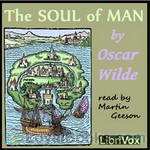 The Soul of Man
The Soul of Man
“(T)he past is what man should not have been. The present is what man ought not to be. The future is what artists are.”Published originally as “The Soul of Man Under Socialism,” this is not so much a work of sober political analysis; rather it can be summed up as a rhapsodic manifesto on behalf of the Individual. Socialism having deployed technology to liberate the whole of humanity from soul-destroying labour, the State obligingly withers away to allow the free development of a joyful, anarchic hedonism... | |
By: Otto A. Witte | |
|---|---|
 The Automobile Storage Battery Its Care And Repair
The Automobile Storage Battery Its Care And Repair
| |
By: Owen Wister (1860-1938) | |
|---|---|
 The Pentecost of Calamity
The Pentecost of Calamity
Nonfiction. Appalled by the savagery of World War I, Owen Wister in 1915 published an attempt to move the United States out of neutrality into joining the Allies against Germany. His aim was the quicker defeat of that nation. (Wister: “the new Trinity of German worship – the Super-man, the Super-race, and the Super-state.”) He was but one of many literary personages who joined in this effort. A moving quote: “Perhaps nothing save calamity will teach us what Europe is thankful to have learned again – that some things are worse than war, and that you can pay too high a price for peace; but that you cannot pay too high for the finding and keeping of your own soul.” | |
By: P. A. (Patrick Arkley) Wright Henderson (1841-1922) | |
|---|---|
 The Life and Times of John Wilkins Warden of Wadham college, Oxford; master of Trinity college, Cambridge; and Bishop of Chester
The Life and Times of John Wilkins Warden of Wadham college, Oxford; master of Trinity college, Cambridge; and Bishop of Chester
| |
By: P. Austin Nuttall | |
|---|---|
 The Nuttall Encyclopædia Being a Concise and Comprehensive Dictionary of General Knowledge
The Nuttall Encyclopædia Being a Concise and Comprehensive Dictionary of General Knowledge
| |
By: P. Gerald (Percy Gerald) Sanford | |
|---|---|
 Nitro-Explosives: A Practical Treatise
Nitro-Explosives: A Practical Treatise
| |
By: P. R. Kincaid | |
|---|---|
 The Arabian Art of Taming and Training Wild and Vicious Horses
The Arabian Art of Taming and Training Wild and Vicious Horses
Back in the day before automobiles, a good horse trainer and veterinarian was the equivalent of “Mr Goodwrench”. A badly behaving or unhealthy equine was equivalent to breaking down on the highway or running out of gas on a lonely stretch of highway somewhere in Utah. My sources tell me that most of the training methods are ok, but stay away from the medical tips unless you are prepared to become the poster boy or girl for the local SPCA. Listen with tongue in cheek, and check with a professional before attempting any of these techniques on a real animal. | |